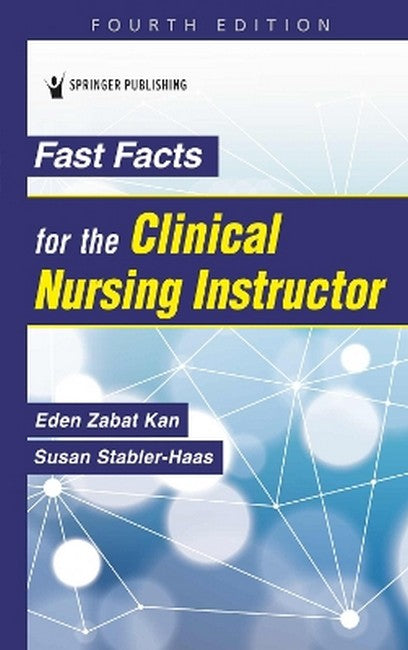Description
Contributors Preface Acknowledgements Introduction Section I: Appreciating Your New Identity: From Caregiver to Educator Chapter 1: Developing a New Identity as a Clinical Nursing Instructor Chapter 2: Understand the Rules: What Every Nursing Instructor Needs to Know About the Nursing Program's Policies Chapter 3: Your New World: Clinical Sites, Clinical Specialties, Clinical Students?and New Student Case Examples Section II: Your Success Depends on You: Preparing for Your Clinical Teaching Assignment Chapter 4: You Are a Guest, So Act Like One? Chapter 5: Organize the Semester---Have a Plan Chapter 6: Confidentiality and Patient Privacy Section III: The High Fliers and Not so High Fliers: Getting to Know Your Nursing Students Chapter 7: The High Fliers: How to Screen for Higher Achieving Students Chapter 8: The Not-So-High Fliers: How to Screen for Potential "Unsafe Students" Section IV: The Performance Appraisals: Clinical Evaluations Chapter 9: The Clinical Evaluation Triad Chapter 10: The Dos and Don'ts of Student Performance Chapter 11: Early Warning System Chapter 12: Graded Clinical Versus Pass/Fail Evaluations Section V: Managing the Clinical Day Chapter 13: Preconferences Chapter 14: Postconferences Chapter 15: Unplanned Events and Absences Chapter 16: Alternative Assignments Chapter 17: Unsafe Practice Section VI: Satisfaction in the Role Chapter 18: What Your Students Will Expect of You Chapter 19: Take Time for Self-Care Section VII: Of Growing Importance Chapter 20: Letters of Reference Chapter 21: Role of Simulation Chapter 22: Technological Implications Chapter 23: Mental Health Impact on Clinical Education Appendix A: An Example of Guidelines for Clinical Orientation Day Appendix B: Clinical Journal and Careplan Appendix B1: Clinical Journal for Student Reflection Appendix C: Clinical Assignment Sheet Appendix D: Student Report Sheet Appendix D1: Daily Report Sheet to Do at Clinical Appendix E: One Minute Breathing Space Appendix F: Three Sample Letters of Reference Index
Eden Zabat Kan, PhD, RN, received her bachelor's degree in nursing from Penn State University, State College, Pennsylvania; her master's degree in nursing education from Villanova University, Villanova, Pennsylvania; and her doctorate in nursing science from Widener University, Chester, Pennsylvania. She is currently employed in the nursing department at the School of Science and Health, the College of Southern Maryland, La Plata, Maryland. Susan Stabler-Haas PMHCNS-BC, RN, is a clinical instructor at Villanova University, Villanova, Pennsylvania. She has more than thirty years of classroom and clinical teaching experience in the areas of medical-surgical, critical care, geriatric, and psychiatric nursing. Her instruction is influenced by her prior roles as staff nurse, rehabilitation nurse, and critical care manager. Professor Stabler-Haas has earned a psychiatric clinical nurse specialist designation from the University of Pennsylvania. She is a licensed marriage and family therapist, a trained mindfulness-based meditation teacher, and author of "Fast Facts for the Student Nurse."

